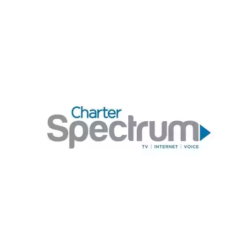Top Class Actions’s website and social media posts use affiliate links. If you make a purchase using such links, we may receive a commission, but it will not result in any additional charges to you. Please review our Affiliate Link Disclosure for more information.

Plaintiff Christopher Anderson is challenging the telemarketing practices of telecommunications company Spectrum, the doing-business-as brand of defendant Charter Communications Inc.
Anderson says Spectrum has been using automated equipment to place unsolicited marketing calls in violation of federal law.
According to this Spectrum class action lawsuit, the defendant has been placing automatically-dialed phone calls to individuals’ cell phone numbers since sometime in 2015.
Anderson believes Spectrum placed these calls using what’s known as “predictive dialing” technology. A predictive dialer dials phone number after phone number, abandoning each call if a live person doesn’t answer. When a live person does answer, the predictive dialer alerts a representative standing by, who then picks up and initiates the conversation. As allegedly used by Spectrum, the predictive dialer connects the called person to a sales representative who then begins making a sales pitch for Spectrum cable television and other services.
Anderson says he received many such calls on his mobile phone in the several months preceding this Spectrum class action lawsuit. He alleges he never gave Spectrum consent to contact him in this manner, nor did he have any prior business relationship with Spectrum. Spectrum continued to call Anderson even after he added his phone number to the National Do Not Call Registry, he states.
Anderson’s claims fall under a federal communications law known as the Telephone Consumer Protection Act, or TCPA. Originally passed in 1991 to curb unwanted commercial phone calls and faxes, the TCPA has been updated to restrict communications sent to mobile phones, including both voice calls and SMS text messaging.
Under the TCPA, businesses and other entities are generally restricted from using automated dialing equipment to call persons who have not given prior express written consent to receiving such calls. Each call that violates the TCPA can put the caller on the hook for $500 to $1,500 in statutory damages.
Anderson proposes to bring this TCPA class action lawsuit on behalf of three different plaintiff Classes.
- The Called Party Class would include all persons in the U.S. who since Oct. 16, 2013 received a call on their mobile phone from the defendant using an automatic telephone dialing system without having provided prior express written consent to receive such calls.
- The Do Not Call Class would represent persons who, within four years before the filing of this action, received two or more solicitation calls from the defendant within the same 12-month period and within 31 days of registering their number with the National Do Not Call Registry.
- The Revocation Class would cover all U.S. persons who, within the past four years, received a call from the defendant after asking the defendant to stop calling their number.
Anderson seeks a court order barring Spectrum from continuing the unauthorized phone calls at issue here. He is also asking for an award of actual and statutory damages, plus court costs and attorneys’ fees.
Anderson’s legal counsel are attorneys Eugene Y. Turin, Myles McGuire and Paul T. Geske of McGuire Law PC.
The Spectrum Unauthorized Telemarketing Class Action Lawsuit is Christopher Anderson v. Charter Communications Inc., Case No. 1:17-cv-03181, in the U.S. District Court for the Northern District of Illinois.
Join a Free TCPA Class Action Lawsuit Investigation
If you were contacted on your cell phone by a company via an unsolicited text message (text spam) or prerecorded voice message (robocall), you may be eligible for compensation under the Telephone Consumer Protection Act.
GET A FREE CASE EVALUATION NOW
ATTORNEY ADVERTISING
Top Class Actions is a Proud Member of the American Bar Association
LEGAL INFORMATION IS NOT LEGAL ADVICE
Top Class Actions Legal Statement
©2008 – 2024 Top Class Actions® LLC
Various Trademarks held by their respective owners
This website is not intended for viewing or usage by European Union citizens.















12 thoughts onSpectrum Class Action Says Unwanted Marketing Calls Violate TCPA
How do I join this class action?
I received these spectrum scam calls at least 10 times a day. When you tell them to stop it still continues. I personally called spectrum up and complained about this they put me on the national restry for do not call list but it still continues These people out to not just be fined but jailed for it. Please put me in this lawsuit. I think phone harassment should get me more money. Because that’s all they understand is being sued.